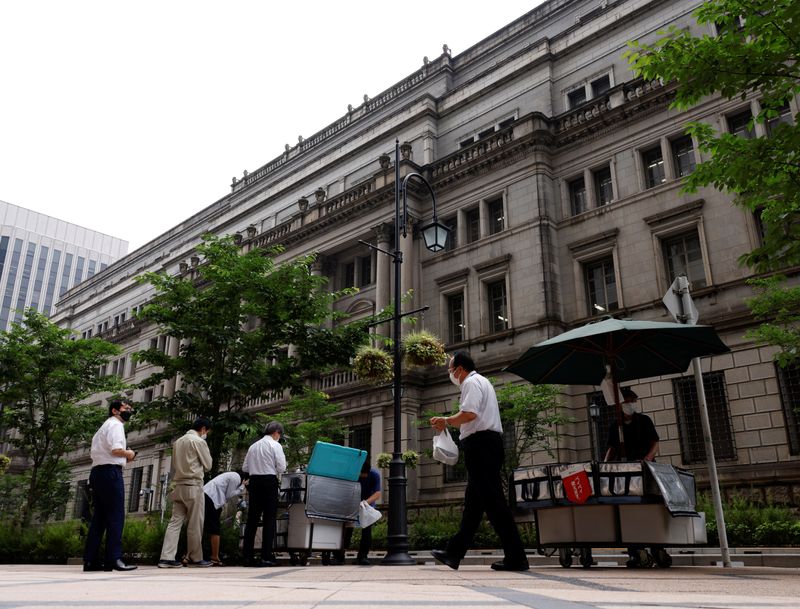By Leika Kihara
TOKYO (Reuters) - Bank of Japan policymakers were divided on prospects for achieving their 2% inflation target with some warning that it could take time for wages to rise sustainably, a summary of opinions from their latest meeting showed on Thursday.
The divergence in views highlight the challenge policymakers face in determining whether the recent cost-driven rise in inflation will shift to one backed by robust demand and higher wages - a prerequisite for raising ultra-low interest rates.
At the January meeting, many board members agreed on the need to retain ultra-loose monetary policy to support the economy and help companies raise pay, the summary showed.
While some in the nine-member board pointed to broadening price hikes and heightening prospects of wage increases, others said price growth will begin to slow as cost-push pressure eases, the summary showed.
"Companies are becoming more keen on raising prices and wages. This could generate a positive cycle between the economy and prices, driven by increases in corporate profits," one board member was quoted as saying.
"Some firms are cautious about raising pay. It will take time for wages to rise sustainably, so macro-economic support is necessary," another opinion showed.
"Consumer inflation will likely slide back below 2%. At present, there is still some distance in achieving our price target," according to a third opinion.
At the Jan. 17-18 meeting, the BOJ maintained ultra-low interest rates but beefed up a monetary policy tool to prevent the 10-year bond yield from breaching a 0.5% cap set just a month ago.
The central bank's massive bond-buying to defend the yield cap has drawn criticism from market players as distorting the shape of the yield curve and draining market liquidity.
The board's debate, however, focused on the need to keep long-term interest rates low, the summary showed, suggesting the BOJ was in no rush to phase out its massive stimulus programme.
"To encourage firms' efforts to transform their businesses and hike wages sustainably, the BOJ must curb interest rates across the entire yield curve while paying attention to bond market function," one of the board members said.
The summary lists the opinions of the BOJ's nine board members, but does not disclose who made them.
Japan's core consumer prices in December rose 4.0% from a year earlier, hitting a fresh 41-year high and keeping alive market expectations the BOJ could phase out ultra-low rates.
BOJ Governor Haruhiko Kuroda, whose term ends in April, has stressed the need to maintain the loose policy settings until wages rise sufficiently, and help keep inflation sustainably around the bank's 2% target.
